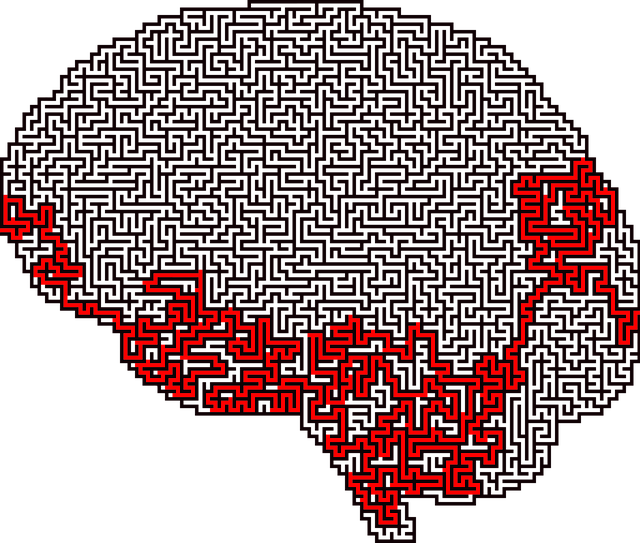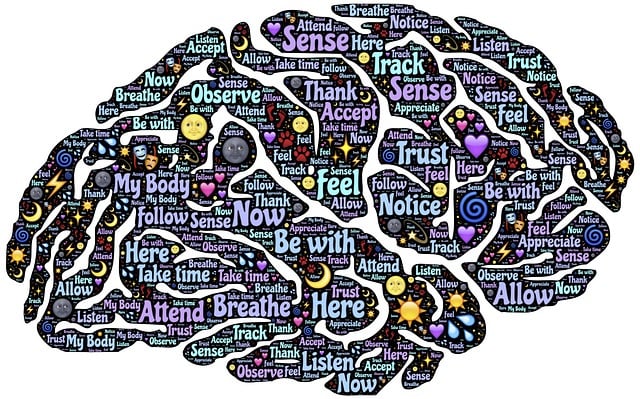Northglenn Relationship Issues Therapy (NRT) plays a vital role in understanding and addressing the diverse mental health needs of the local community, reducing stigma, and offering tailored support. Effective outreach involves analyzing service gaps, integrating evidence-based practices like Mind Over Matter principles, strategic planning with local partners, and continuous evaluation using KPIs to ensure programs remain impactful and relevant.
Community outreach programs play a vital role in fostering strong, healthy neighborhoods. This article explores how cities like Northglenn can effectively address local needs through targeted initiatives. We delve into understanding community dynamics, designing inclusive strategies, and implementing proven programs, with a focus on mental health support, particularly relationship issues therapy. By measuring success and continuously improving, Northglenn can create lasting positive change, enhancing the well-being of all residents.
- Understanding Community Needs and Northglenn's Role
- Designing Effective Outreach Strategies
- Implementing Programs: A Step-by-Step Guide
- Measuring Success and Continuous Improvement
Understanding Community Needs and Northglenn's Role

Understanding community needs is a pivotal step in designing effective outreach programs. Northglenn, as an active and diverse community, faces unique challenges that require tailored solutions. The role of local authorities and organizations like Northglenn Relationship Issues Therapy (NRT) becomes increasingly crucial here. NRT plays a pivotal part in addressing relationship issues, mental illness stigma reduction efforts, and trauma support services within the community.
By engaging directly with residents, NRT can identify pressing concerns and tailor their outreach programs to provide much-needed assistance. This proactive approach not only enhances the overall well-being of Northglenn’s citizens but also fosters a sense of belonging and support, ultimately strengthening the community fabric. Effective implementation of these programs requires sensitivity, cultural awareness, and an understanding of local dynamics, all of which NRT is committed to delivering in their outreach initiatives.
Designing Effective Outreach Strategies

Effective community outreach strategies for mental health services, such as Northglenn Relationship Issues Therapy, require a deep understanding of the local landscape and the unique needs of the population served. By conducting a thorough Mental Health Policy Analysis and Advocacy, therapists and organizations can identify gaps in services and tailor their outreach efforts to address specific concerns. Incorporating Mind Over Matter principles into these strategies can enhance engagement by emphasizing hope, resilience, and self-empowerment.
For instance, integrating Mental Wellness Journaling Exercise Guidance can provide a structured yet flexible framework for individuals to document their experiences, track progress, and set goals. This not only empowers them with tools for personal growth but also offers valuable insights into community members’ mental health journeys. By fostering open dialogue and normalizing conversations around mental wellness, these strategies can help dispel stigma and encourage those in need to seek guidance from local therapy services like Northglenn Relationship Issues Therapy.
Implementing Programs: A Step-by-Step Guide

Implementing community outreach programs, like Northglenn Relationship Issues Therapy, requires careful planning and execution. Start by identifying the specific needs of your target community, which could range from mental wellness coaching programs to development initiatives focused on empathy building strategies. Conduct thorough research to understand the existing resources and gaps in services. This step is crucial for designing relevant and impactful interventions.
Next, develop a comprehensive strategy outlining program goals, target demographics, and delivery methods. Incorporate evidence-based practices and consider leveraging technology for accessibility and scalability. For instance, Mental Wellness Journaling Exercise Guidance can be digitized to reach a broader audience. Ensure community involvement through partnerships with local organizations and feedback collection from potential participants. Regularly assess and adjust your programs based on ongoing evaluations to guarantee their effectiveness in enhancing Northglenn residents’ mental wellness.
Measuring Success and Continuous Improvement

Measuring the success of community outreach programs is a crucial aspect that often determines their long-term viability and impact. Organizations like Northglenn Relationship Issues Therapy (NRIT) can gauge effectiveness by tracking key performance indicators (KPIs). These might include the number of individuals reached through various initiatives, the level of engagement, and the perceived improvement in participants’ well-being. For instance, NRIT could measure satisfaction rates after crisis intervention guidance sessions to understand how valuable the program is for those facing immediate challenges.
Regular evaluation allows for continuous improvement, ensuring that outreach programs remain relevant and beneficial. By analyzing data on burnout prevention and stress reduction methods employed, NRIT can refine their strategies and tailor them to evolving community needs. This iterative process encourages a dynamic approach, fostering a healthier and more resilient community environment.
Community outreach programs, as demonstrated through Northglenn’s initiatives, play a pivotal role in addressing local relationship issues and enhancing therapy accessibility. By understanding community needs, designing targeted strategies, and implementing structured guides, such programs can effectively reach those in need. Continuous improvement, measured through thoughtful assessments, ensures that these efforts remain impactful. Embracing these practices fosters a healthier, more connected Northglenn community.













